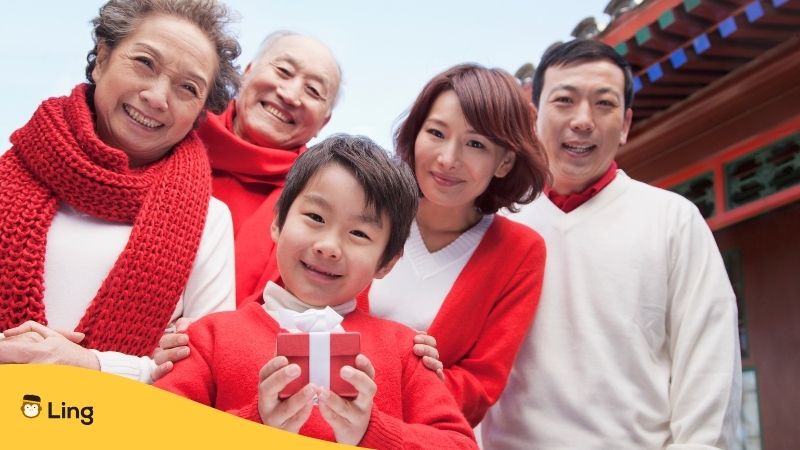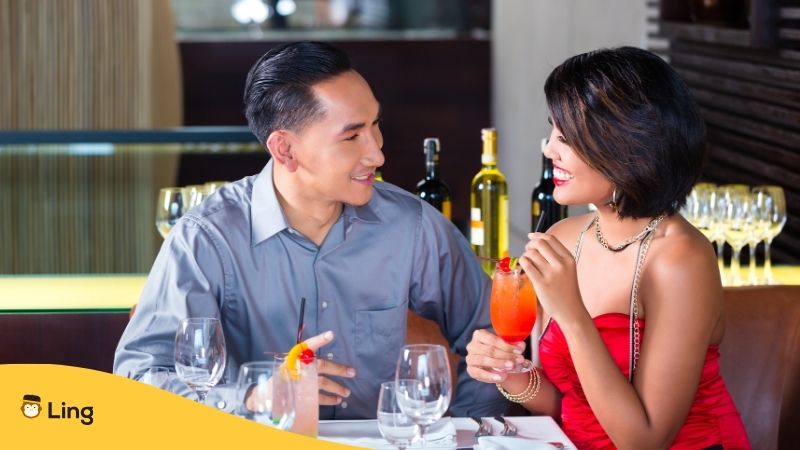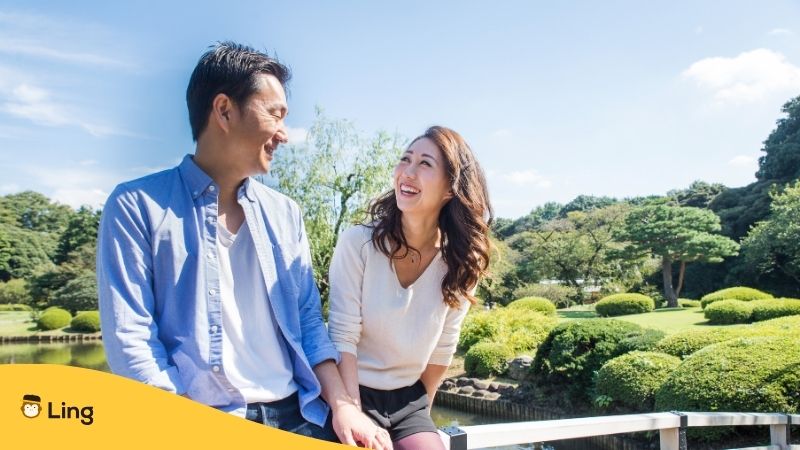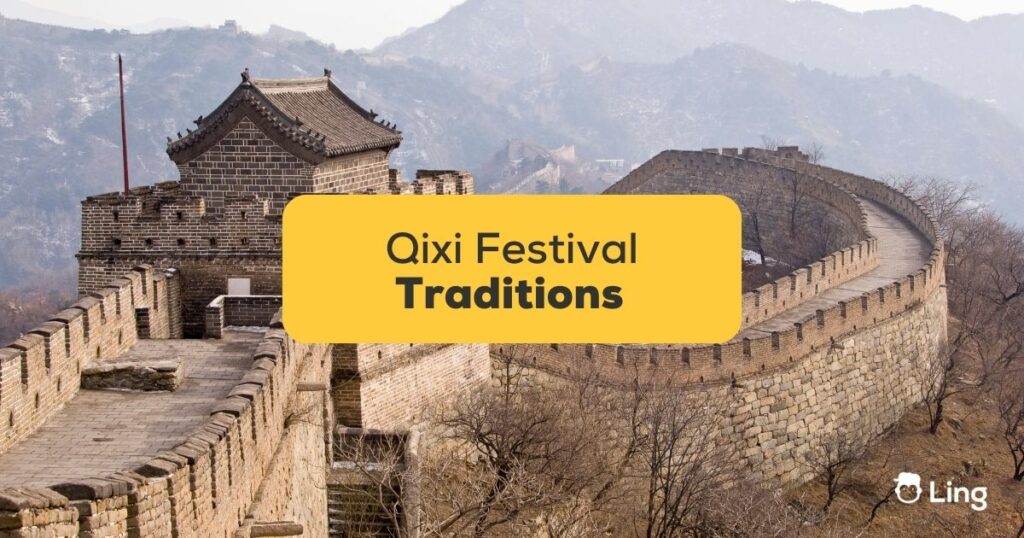When I first heard about the Qixi Festival Traditions during my early days as an expat living in China, I didn’t really know what to make of the holiday. As someone new to the country, many Chinese festivals and celebrations can seem totally foreign at first! Qixi, in particular, was intriguing – often called “Chinese Valentine’s Day,” it sounded romantic yet mysterious.
As I spent more time immersing myself in the culture over the years, Qixi quickly became one of my favorite holidays. I loved seeing the excitement in the air, the festive decorations lining the streets, girls eagerly browsing matchmaking markets, and couples exchanging gifts and affectionate gestures. The lively festivities truly warmed my heart. Plus, I can’t resist seasonal fruit and sugar-dusted pastries!
In this blog, I’ll be your guide to everything you need to know about observing Qixi festival traditions as an outsider. Along the way, I’ll dish out tips to fully embrace and immerse yourself in this Chinese Valentine’s Day from my own experience taking part over the years.
Table of Contents

What Is Qixi Festival?
Celebrated every year on the 22nd day of August, the Qixi Festival commemorates the annual reunion between two star-crossed lover gods – the cowherd Niulang and the weaver girl Zhinü.
Their tale is stuff straight out of a Chinese mythology romance novel! Long story short, Zhinü was a goddess weaver girl who fell in love at first sight with a humble mortal cowherd, Niulang. Cue drama – her goddess mom found out and was not having it. In a fit of rage, she scratched a river in the sky (which we now call the Milky Way galaxy), separating the two lovers for eternity.
Heartbroken, the two pined for each other from afar year after year…until a stroke of magic one day when empathetic magpies formed a bridge over the celestial river. The lovers raced toward each other and shared a sweet, romantic reunion! The love between the star-crossed lovers moved Zhinhu’s mother, who then permitted the couple to meet once a year on that very same day, which is the seventh day of the seventh lunar month.
So now the 7th day of the 7th month represents the one night each year Niulang and Zhinü can meet. Thus, a modern festival filled with love and celebration emerged from this legend over time.

What Are The Qixi Festival Traditions?
Ready to join in on this double seventh festival? Mover over western Valentine’s Day, for we’ve got the best traditions you need to follow to partake in the Qixi festival.
Eating Qiǎoguǒ (巧果 )
One of my favorite food traditions of Qixi is nibbling on cups of steaming hot qiǎoguǒ. These sweet pastries pack way more symbolic meaning than their doughy appearance lets on! You see, the character 巧 (qiǎo) sounds remarkably similar to the word for bridge: 桥 (qiáo). Any guesses what this is referring to?
Ding ding ding!
The celestial Magpie Bridge that allowed Niulang and Zhinü to reunite! So by eating little 巧果, people are reminded of the legendary bridge once built by clever magpies to join the star-crossed lovers.
Dress Up In Hanfu (汉服)
As a bit of a Chinese history and fashion buff, I love that Qixi gives me an excuse to play imperial dress-up! Why? Well on this day, women traditionally adorn themselves in flowing hanfu robes – elegant silken dresses inspired by ancient Chinese royal attire. I’m talking billowy sleeves, embroidered sashes, and vibrant splashes of red, gold, and pink.
To me, slipping into my own hanfu makes me feel gracefully elegant and maybe a touch like the celestial Weaver Girl herself! Even if I can’t quite pull off her goddess-level grace.
Beyond playing a fairy tale princess, wearing hanfu on Qixi serves a symbolic purpose. The long, loose robes represent virtues like wisdom, fidelity, and fertility that women strive to embody in relationships.
You’ll see many single ladies donning their finest hanfu while making offerings of sweet fruits, flowers, and incense. These rituals bless lunar goddess Zhinü to answer their prayers – helping them develop inner poise and find future husbands skilled in needlework.
Meanwhile, married women often craft elaborate displays while dressing festively as well. It’s considered auspicious to make offerings in pairs on Qixi night, hoping to conceive twins!
The defenses around my fruit platter would definitely need reinforcements if I was going for two kids…but mothers-to-be can dream!
When the incense burns low late into the evening, groups of girlfriends will challenge each other to threads needles while blindfolded. It’s playful proof of the blessing from the Weaver Girl, bestowing her graceful dexterity upon her eager devotees!
Giving Flowers And Chocolates
Nowadays, the melodic strum of traditional Qixi zithers often mixes with cheesy Western pop songs blasting from flower shop speakers. In the modern era, China’s Valentine’s Day has certainly absorbed some international commercial vibes!
Strolling through Shanghai hand-in-hand on Qixi night feels like wandering European cobblestoned streets in the days leading up to February 14th. Flashes of red roses, pink candies, and golden gift boxes shine in every storefront I pass.
While traditional Chinese Qixi customs still reign in the countryside, urban couples have wholeheartedly embraced certain cliché romantic gestures us Westerners are quite familiar with too. I’m talking boxes of chocolate, bouquets of roses, and saccharine love song filled date nights. Hallmarks of the global Valentine’s phenomenon, for better or worse!

Easy Chinese Words For The Qixi Festival
Over the years, my Mandarin language skills have certainly gotten a boost thanks to learning all the fun new vocabulary surrounding Qixi! I’ve already covered some lyrical words like qiǎoguǒ (巧果) and hanfu (汉服). But here’s a handy cheat sheet of other common Qixi terms to sprinkle into your conversational Chinese.
- Niúláng (牛郎) – The Cowherd, namely handsome stud Niulang from the star-crossed lover legends
- Zhīnǚ (织女) – The Weaver Girl, a.k.a. goddess babe Zhinu
- Qīxì (七夕) – The seventh night, referring to the 7th day of the 7th lunar month
- Láliàng (蜡梁) – “Wax Bridge” – another phrase for the celestial Magpie Bridge that allowed the lovers to unite
- Yuè bào (月饼) – Mooncakes, a seasonal pastry traditionally eaten during this mid-autumn harvest holiday
- Xī, qí, jié hé – 喜气洋洋 – “Joyously happy” or “full of joy and celebration” – perfect for describing the cheerful Qixi vibes!
Ready To Join The Chinese Valentine’s Day?
After all this talk of star-crossed gods, silk robes, steamy buns, and ruby-red romance, you’re probably itching to experience Qixi magic yourself! Luckily, fully immersing in traditional Chinese Valentine’s Day cheer isn’t too tricky for us visitors.
And if you’re still mastering your Chinese chops, no worries! Be sure to download the Ling app to get 10-minute lessons to uncover the best words and phrases to use in real life. Give it a try now!






























































